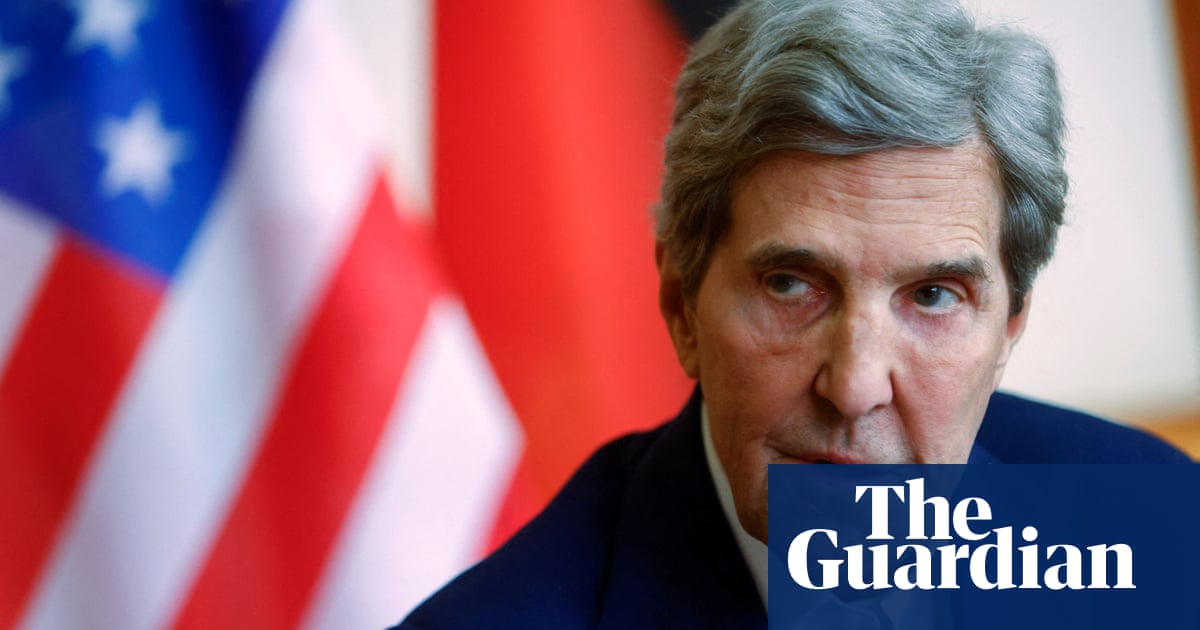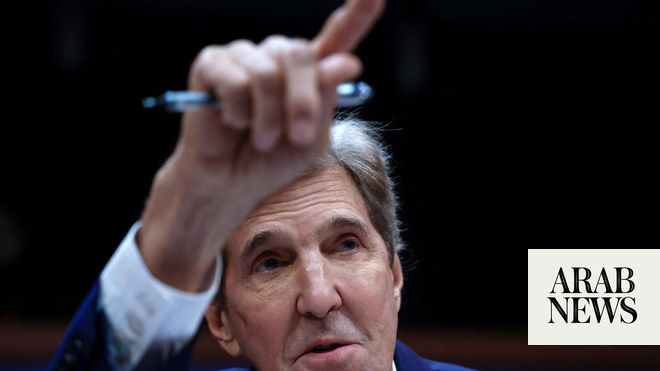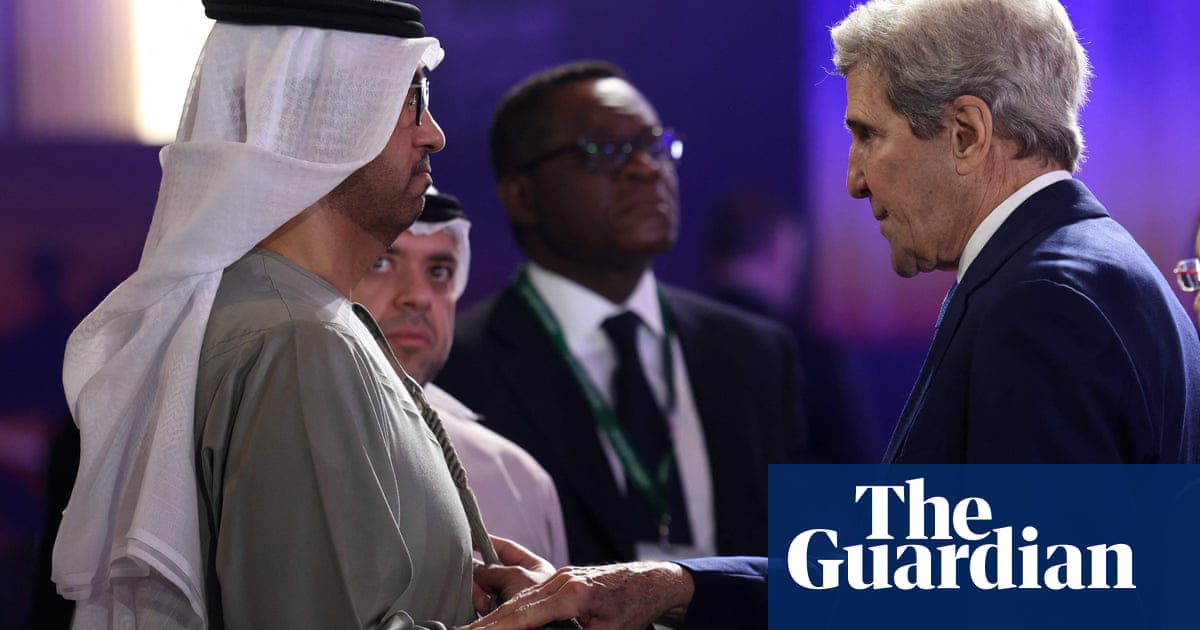
John Kerry, the US climate envoy, has called for more rapid action to confront the climate crisis in a crucial visit to China that is taking place against a fraught backdrop, with both countries currently baking under record heatwaves and Kerry facing hostile opposition from Republicans back home.
Kerry’s meeting with Xie Zhenhua, his Chinese counterpart, for three days of formal talks in Beijing is the first substantive summit between the world’s two largest carbon emitters on the climate crisis since relations were frozen last August, when Nancy Pelosi, the then-House of Representatives speaker, visited Taiwan, a move condemned by China’s leadership.
The visit comes amid roiling heatwaves across the world, including in the US, where more than a third of the population is under heat warnings and where, in California’s Death Valley, a temperature close to the hottest ever recorded reliably in the world was reached on Sunday. China, meanwhile, has just had its national record temperature set in the western region of Xinjiang, where it reached 52.2C (125F).
This year is likely to be, globally, the hottest ever recorded and represents “real life unfolding before our eyes as a consequence of the choices we make or don’t make”, Kerry said of the cooperation between China and the US, which together are responsible for about 40% of the world’s planet-heating emissions. “The world and the climate crisis demand that we make progress rapidly and significantly,” said the envoy. “It is vital that we come together to take action.”
Joe Biden’s administration hopes to prod China to act more rapidly to curb its emissions, particularly from coal as well as methane, a potent greenhouse gas emitted during fossil fuel production and agricultural development. Kerry acknowledged that China was doing “an incredible job” of building out renewable energy such as wind and solar. “But on the other hand, we see new coal coming online, which undoes the benefit of that,” he said.
China, which leads the world in renewables as well as coal production, still retains broader unresolved grievances with the US, such as over trade and surveillance, but Xie said that the two countries would aim to “seek common ground while shelving our differences” during the climate talks.
“Kerry and Xie are both pragmatists and they will try to move the ball down the field, which is important given the backdrop of extraordinary heat on every continent,” said Rachel Kyte, dean emeritus of the Fletcher School at Tufts University.
Kyte said there was hope the two superpowers could help rally other countries to phase out methane emissions, as well as make progress on the vexed topic of international climate finance.
“The relationship between the US and China is critical to this,” she said.
Biden’s climate agenda faces pressure not just via the troubled relationship with China but also from critics at home and other developing countries abroad. Last week, Kerry faced hostile questioning from a Republican-dominated House committee that demanded that he hold China – which has said it will get to net zero emissions by 2060 – to account for not cutting pollution quickly, and for its human rights abuses.
“They’re not an honest broker when it comes to addressing emissions,” said Michael McCaul, the Republican chairman of the foreign affairs committee, of China. “They fire a coal plant up pretty much every day, if not week.”
Scott Perry, another Republican congressman, falsely claimed that climate change was “a problem that doesn’t exist” and erroneously speculated that plant life would die out if carbon emissions were cut. When challenged by Kerry on why the world’s governments have agreed to address the climate crisis, Perry said: “Because they’re grifting, like you are.”
In another, heated exchange that focused on Kerry’s use of private jets, the former Democratic presidential nominee said it was “one of the most outrageously persistent lies that I hear” that he uses one.
Kerry has said he flies commercially, although his wife previously did own a family jet, which has since been sold.
In response to a question over whether the US would provide “climate reparations” to developing countries that have experienced the most severe impacts from climate change-driven heatwaves, floods and storms, Kerry said “no, under no circumstances”. The Biden administration has said that it supports a “loss and damage” fund to support vulnerable nations, but has ruled out accepting any sort of liability that would leave it open to legal jeopardy.
Kerry’s response was immediately criticized by climate campaigners who have called for the US, the world’s largest historical carbon polluter, to do more to compensate victims of the climate crisis in poorer countries.
“This is like a millionaire crashing their Ferrari into your house and then refusing to pay for the building to be fixed,” said Mohamed Adow, director of Power Shift Africa. “No one has caused climate vulnerable people more loss and more damage from their years of burning fossil fuels than the US and now they say they won’t clean up their own mess.”
Kyte said she thought Kerry did “a very good job of batting away performative climate denialism” from Republicans during the committee.
“It’s an overreaction to say Kerry has betrayed developing countries, the wrath should be with the congressmen who sit there not representing their own people who are melting at the moment,” she said. “This is a tragedy foretold, and yet we still get this sort of questioning. It’s a dereliction of duty.”










